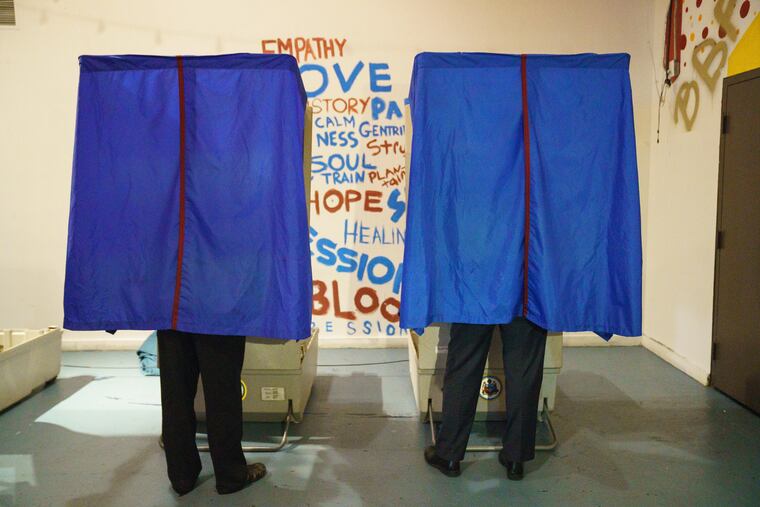No, Pa. Supreme Court says, candidates can’t be nominated by multiple parties
A Democratic state representative from Philly had challenged the state’s ban, but the Supreme Court ruled 4-3 to uphold it.

In a setback for potential third party candidates, the Pennsylvania Supreme Court has upheld the state’s ban on allowing multiple political parties to nominate the same candidate in an election, a practice known as “fusion.”
In issuing its ruling Wednesday, the court said that third-party voters remain able to support their candidates and that overturning the ban would create problems for the Department of State in determining which groups count as political parties under state law.
State Rep. Chris Rabb, a Democrat from Philadelphia, brought the challenge in 2017 with the Working Families Party and two independent voters after the department rejected their attempt to give Rabb the WFP nomination after he had already won the Democratic primary.
They argued that electoral fusion — also known as fusion voting or ballot fusion — ought to be permitted equally by all candidates or parties. It’s allowed at the local level in Pennsylvania, and is not uncommon in practice at the state level when a candidate wins both the Democratic and Republican primaries: one as a candidate on the ballot and the other as a write-in.
Third parties face steeper requirements for getting on the ballot in Pennsylvania, making it more difficult for a candidate to be nominated by both a major and a third party.
“It’s possible, but it’s not equitable,” Rabb said Thursday. “There’s a big difference between the two.” That’s unconstitutional, he said in Working Families Party v. Commonwealth of Pennsylvania.
But Commonwealth Court rejected the plaintiffs’ arguments last year, and on Wednesday the high court upheld that ruling in a 4-3 decision, saying third-party voters’ rights aren’t violated.
“In no sense were their votes diluted by the fact that Rabb appeared on the ballot only as the candidate of the Democratic Party in the 2016 general election," Justice Sallie Updyke Mundy wrote.
Mundy was joined by Chief Justice Thomas G. Saylor and Justices Max Baer and Kevin M. Dougherty.
The justices said they were also persuaded by the state’s argument that allowing fusion would create electoral chaos because of the way ballots are organized in Pennsylvania, with each candidate listed only once. All votes would go simply to, say, “Christopher M. Rabb (Democratic Party/Working Families Party)”, not separately to “Christopher M. Rabb (Democratic Party)” or “Christopher M. Rabb (Working Families Party).”
The law requires the state to use election results to categorize political organizations as a “political party” or “minor political party,” and those classifications determine issues such as requirements for getting on the ballot.
Justice David Wecht filed a forceful dissent, and Justice Debra Todd filed a separate dissent that agreed with him; Justice Christine Donohue signed onto both.
Wecht said political parties play important roles in the electoral system. The ban on fusion, he wrote, raises questions about “a self-reinforcing system in which political power begets more political power to the manifest exclusion of marginal and minority political coalitions and dissenting perspectives.”
Rabb said he isn’t giving up the fight.
“Even though it wasn’t a win yesterday, it’s something to work with,” Rabb said. “This is a real moment. … Anything is possible, but it’s not going to happen overnight.”